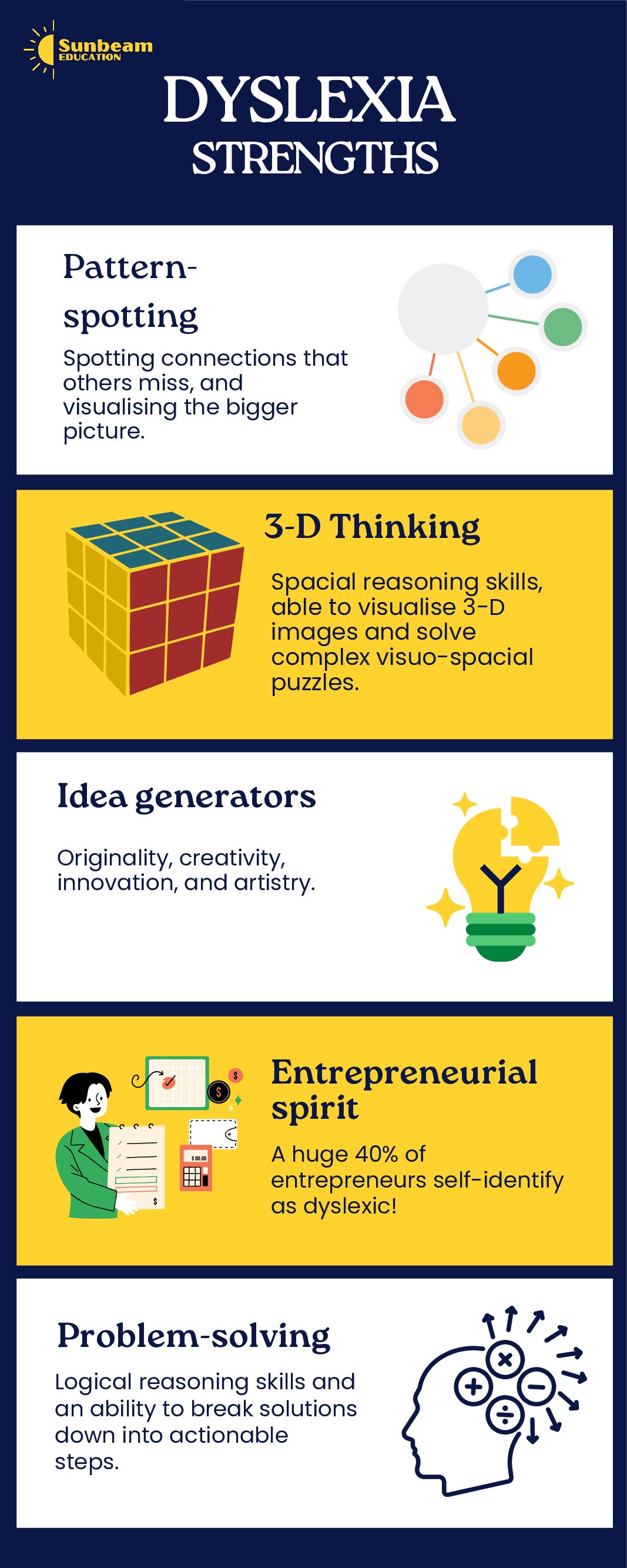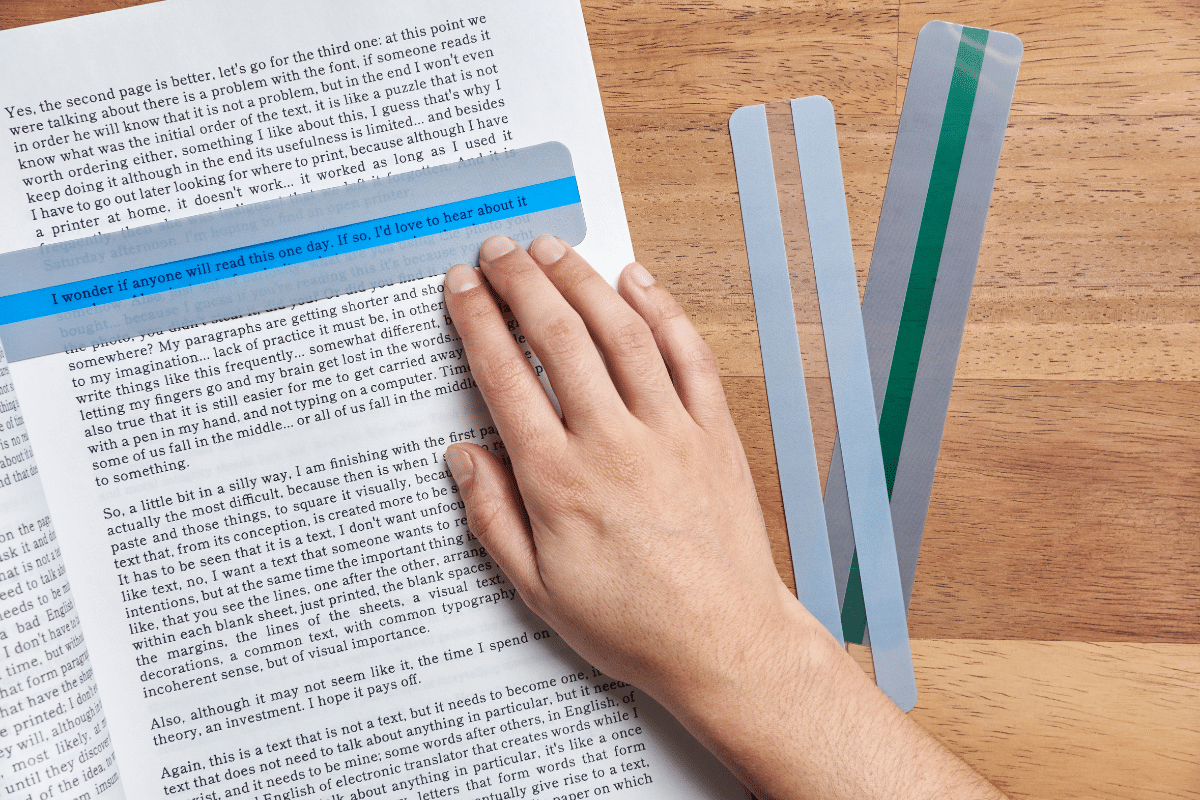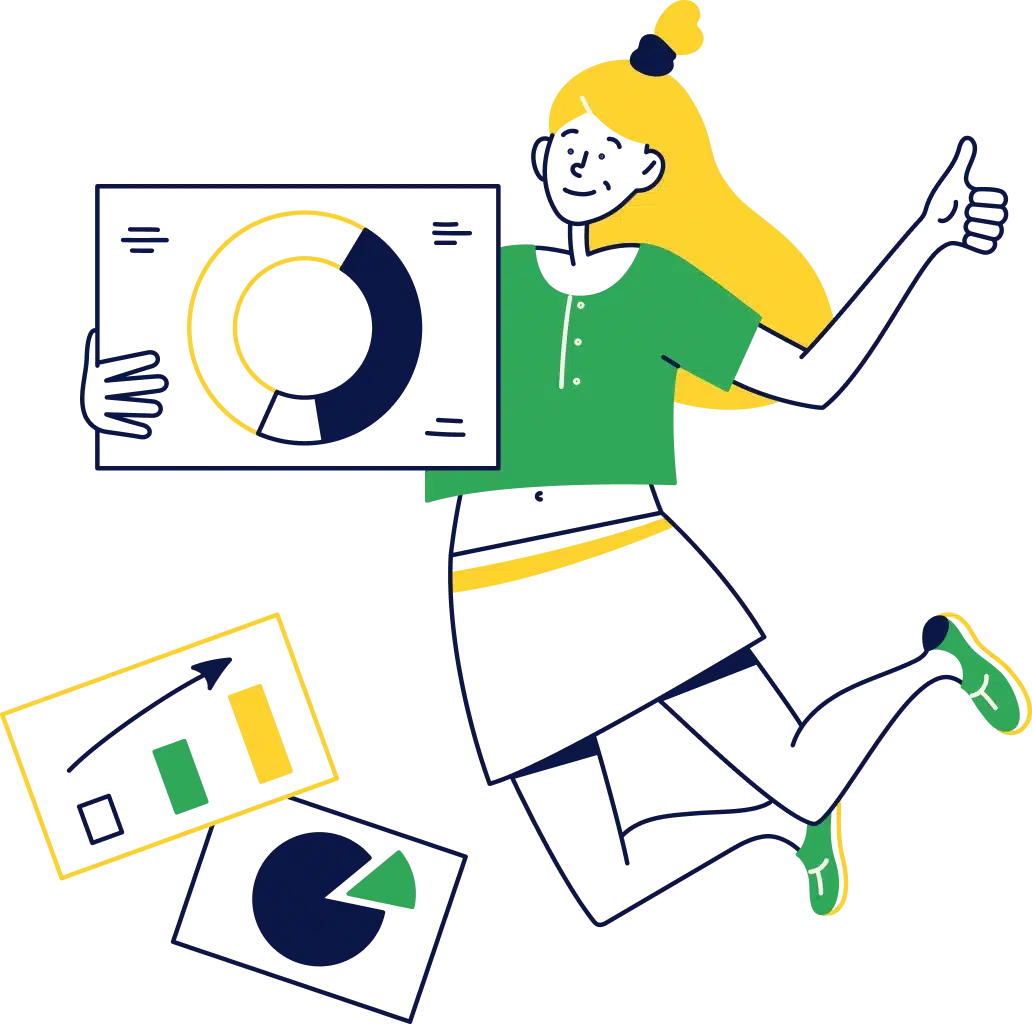Dyslexia is more than a reading difficulty; it's a neurobiological condition with its own unique brain wiring. Dyslexia is a complicated condition, as observed by dyslexia experts Drs. Brock and Fernette Eide: “...symptoms vary a lot. We’ll see dyslexic kids with a verbal IQ of 140 or 145 who will read with good comprehension, and as a consequence won’t be recognised as dyslexic.” Those with dyslexia often think in a different way, which can result in better pattern-spotting and imagination. University of Cambridge research shows that dyslexic people excel at “exploring the unknown”.
Dyslexia used to be viewed solely as a disability. Now, its positive traits for experimentation and innovation are beginning to be understood and celebrated.
This is part of a recent series we have been writing, focusing on the positive traits associated with other special educational needs or neurotypes:
Autism - Celebrating Autism Strengths in Students
ADHD - An Exploration of ADHD Strengths
1. Dyslexic Pattern Recognition: Seeing the Wood for the Trees
Dyslexic students can be excellent at pattern recognition. Many are also great at seeing the bigger picture without getting stuck in the details. Studies report a “greater capacity to reason in multiple dimensions”. This means that dyslexic people can connect ideas and see issues that others simply don’t see.
2. Visual-Spatial Reasoning: Thinking in 3-D
Those with dyslexia are often great at seeing objects (such as 3-D designs or maps) in their mind. Adolescents with dyslexia have been shown to complete complex visuospatial tasks faster than typical readers, showing a type of brain activation that favours this way of thinking. We have seen that many of our students with dyslexia describe “thinking in pictures”.
3. Dyslexia and Creativity: Idea Generators
In one of the first papers to discuss the potential strengths associated with dyslexia, students with dyslexia produce more original ideas and more creative drawings than those without. This confirms our observations when working with students. A 2022 Cambridge study even argues that dyslexia’s abilities in discovery, invention and creativity have been vital to human innovation.
4. Hidden Strengths and Advantages of Dyslexia
- Recognition and memory: Swedish researchers showed that children with dyslexia out-performed typical readers on old and new recognition tasks after short exposures.
- Paper-folding prowess: On the classic paper-folding test, dyslexic students predicted unfolded shapes more accurately than their peers. This demonstrates a strength in thinking in three dimensions.
- Entrepreneurial over-representation: A Bayes Business School survey found that 40 % of entrepreneurs self-identify as dyslexic, well above the average rate of dyslexia in the general population (approximately 10%).
- Security-services recruitment: GCHQ runs programmes to harness dyslexic pattern recognition for security analysis.
- Design thinking showcase: London’s Dyslexic Design exhibition highlights everyday objects re-imagined by dyslexic creatives, proving innovation thrives on neurodiversity.

Guidelines for Parents and Educators
- The big picture - I always start with an overview before diving into the details. This is good advice for all learning.
- Use visual tools - diagrams and 3-D models make the most of spatial strengths, and coloured overlays can reduce visual stress when reading printed text.
- Assistive tech - text-to-speech frees cognitive bandwidth for innovation. It’s worth learning about cognitive load in order to help dyslexic students save their cognitive energy for where it really matters.
- Measure learning outcomes instead of spelling - comprehension of subject matter is the most important part of a student's learning process.
Closing Reflection
Skills such as visual reasoning, problem-solving, and empathetic leadership are highly valuable in today’s complex world, and many individuals with dyslexia possess these abilities in spades. Here at Sunbeam Education, we're proud of our dyslexic students and their wonderful, creative brains!
At Sunbeam Education we build these insights into every coaching and tutoring session. If you’d like to learn about our support, speak to our educators.
For more free dyslexia support, check out our blog posts on Supporting Students with Dyslexia: Practical Home Study Tips, and7 Must-Read Books to Help You Understand Dyslexia.





